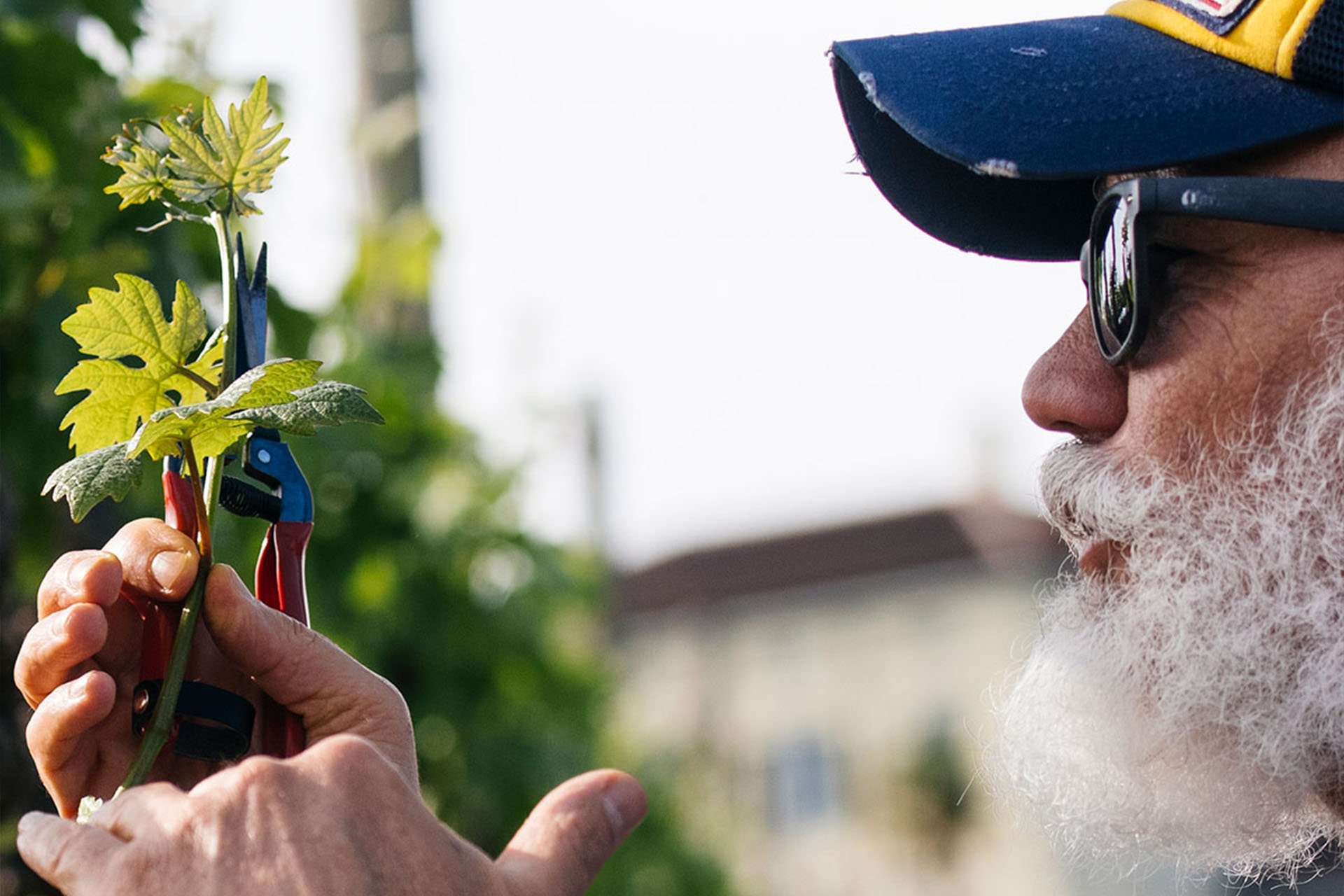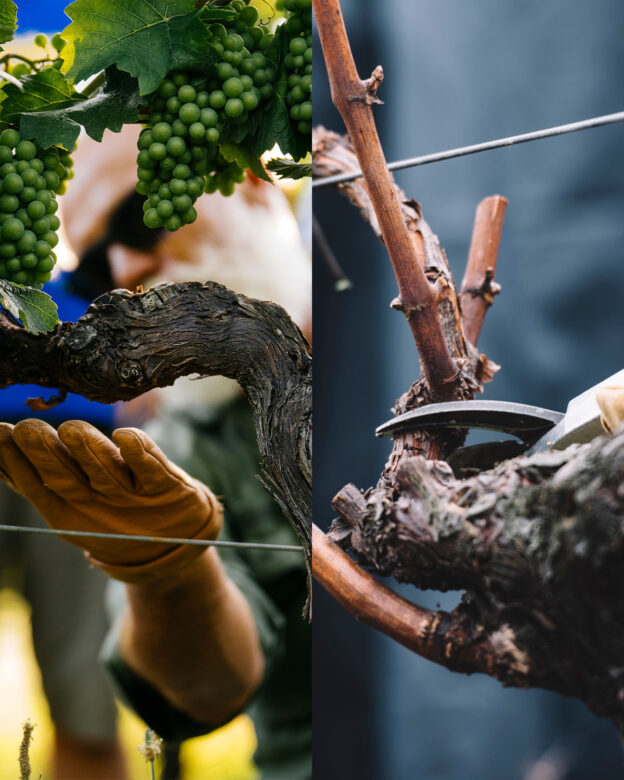The 4 Principles of the Simonit&Sirch Method for Guyot
With Vine Pruner Guyot + Spurred Cordon course you will learn how to observe the vine better, study traditional pruning methods and their consequences and acquire the knowledge about the principles of the SIMONIT&SIRCH Pruning applied to Guyot + Spurred Cordon.
“Here is the first tip: you can never get it wrong. Always start with observing the primary structure. Get used to touching your plants”….
Marco Simonit, Master pruner and founding partner of Simonit&Sirch


